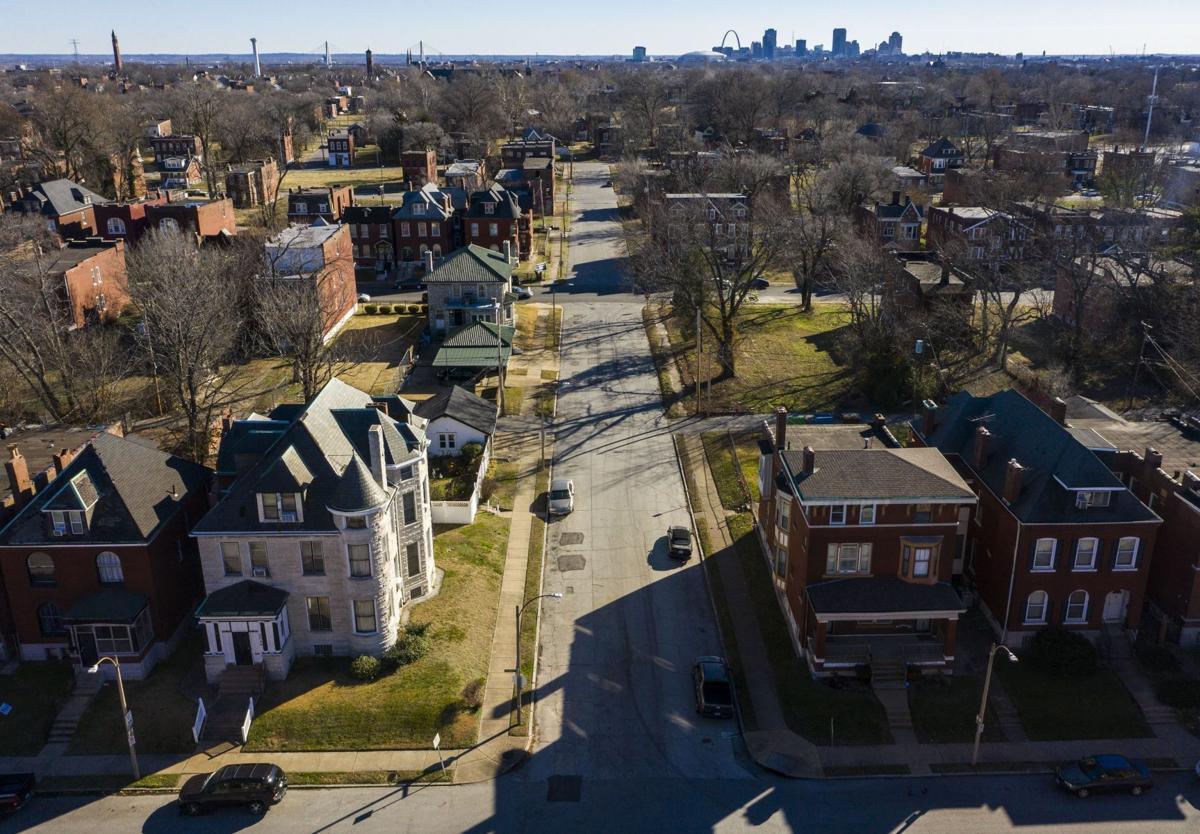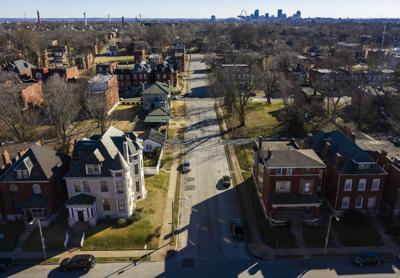ST. LOUIS ŌĆö The cityŌĆÖs economic development arm will pay a contractor up to $150,000 to develop an ŌĆ£economic justice action plan,ŌĆØ to prioritize its work and also coordinate its use of federal stimulus dollars with efforts to raise private capital.
├█č┐┤½├Į Development Corp.ŌĆÖs initiative comes just more than a year after the office released its ŌĆ£Equitable Economic Development Framework,ŌĆØ a strategic plan aimed at stemming population loss and rebuilding the cityŌĆÖs Black middle class. Developed over an 18-month planning period, the city paid some $800,000 to Boston-based Mass Economic for the effort.
But the document was unwieldy: 445 pages with 56 strategies and action items. New Mayor Tishaura O. Jones said during her campaign that the plan didnŌĆÖt tell ├█č┐┤½├Į anything new and that ŌĆ£people deserve action.ŌĆØ
People are also reading…
Now, with new leadership at SLDC ŌĆö Neal Richardson, who took over in June following the retirement of longtime chief Otis Williams ŌĆö the Jones administration is putting its own twist on the strategic direction of the powerful economic development agency. Daffney Moore, who was promoted in July to RichardsonŌĆÖs chief of staff, said the action plan will prioritize some of the goals in the Equitable Economic Development Framework while also laying out strategies to raise and leverage private capital as well as federal and state dollars.
├█č┐┤½├Į economic plan focused on rebuilding Black middle class, stemming north side population loss
├█č┐┤½├Į development office says it will shift to place-based effort, including project managers dedicated to specific neighborhoods.┬Ā
ŌĆ£We want to make sure we have enough capital to do what we need to do in the community,ŌĆØ said Moore. ŌĆ£ItŌĆÖs going to take billions of dollars to redevelop the city of ├█č┐┤½├Į.ŌĆØ
Moore, a former city manager in East ├█č┐┤½├Į and Dellwood, was hired at SLDC in 2019 to oversee its local Opportunity Zone program, part of the 2017 federal tax overhaul that offers tax breaks for investors who put capital into developments located in lower-income areas. Moore also ran for the cityŌĆÖs school board this year and was supported by a political action fund that also supported Jones.
SLDCŌĆÖs board agreed Thursday to let Richardson execute a contract for the the new action plan with the Columbus, Ohio-based Council of Development Finance Agencies, a national association that provides consulting services. ├█č┐┤½├Į planning firm PGAV and private , a former official at the ├█č┐┤½├Į Economic Development Partnership in ├█č┐┤½├Į County, will also work on the new plan. Henderson was one of JonesŌĆÖ appointees to a 25-member panel advising the administration on spending nearly $500 million in federal pandemic aid.
Board members unanimously supported the resolution, but they asked SLDC staff to provide regular progress reports to them on the planŌĆÖs development. They also instructed staff to show them the final contract when itŌĆÖs written.
ŌĆ£IŌĆÖm curious how this is all coming together, the final piece of it,ŌĆØ said board member Matt McBride, an attorney at Lashly & Baer.
The new action plan will be created quickly, with a draft in early November and a final plan by mid-December, Moore said.
Referencing the existing plan, SLDC board member Sean Spencer said he was ŌĆ£a little concerned about duplicating services.ŌĆØ
Moore said the contract will have a defined scope of work.
ŌĆ£We donŌĆÖt want to duplicate anything, and thatŌĆÖs why itŌĆÖs an action plan,ŌĆØ she said.
Richardson said much of the focus will be on ŌĆ£developing a pool of fundsŌĆØ so the existing plan ŌĆ£is actionable.ŌĆØ
Nahuel Fefer, JonesŌĆÖ director of policy and development, said the action plan will help the city win or coordinate dollars from several federal pandemic programs, including the , the American Rescue Plan and the pending infrastructure bill, plus a new round of New Markets Tax Credits.
Fefer has served as SLDC board chair as part of JonesŌĆÖ transition but is stepping down so Richardson can chair the board as past SLDC directors have. Fefer will still work closely with SLDC, and he said the action plan would help formalize the new administrationŌĆÖs development incentive philosophy. Though he said he believed the cityŌĆÖs development principles are clear, he acknowledged developers want ŌĆ£clear processes and policies.ŌĆØ
Negotiations with the new aldermen and mayoral administration slowed the projectŌĆÖs approval, but the parties say they now have a ŌĆśmodel for equitable development.ŌĆÖ
ŌĆ£WeŌĆÖve heard loud and clear from the development community,ŌĆØ Fefer said.
City Hall has renegotiated several tax incentive deals since the Jones administration moved in, most prominently the next phase of the City Foundry development that was pushed to include a $1.8 million contribution to the cityŌĆÖs affordable housing fund in exchange for $18 million in tax incentives.
ŌĆ£Actually pulling this together into a formal policy and process that developers can look at and expect consistent outcomes is important to us,ŌĆØ Fefer said.































